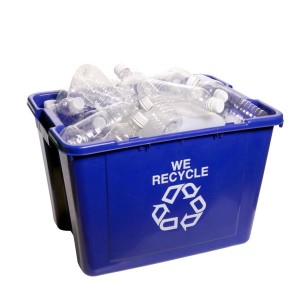Recycle Bottles, Not Valuations

Valuations are valid only for a specific time and purpose. Typically, a valuator explains the valuation's scope in an engagement letter and again in the written report. Despite this, business owners sometimes mistakenly think they can save time and money by recycling old valuations for new purposes.
In fact, the unintended use of a valuator's conclusion can diminish the report's credibility. It may lead to misinformed business decisions, fiduciary breaches and embarrassing courtroom mishaps.
One wrong turn leads to another
To illustrate the perils of recycled valuations, consider Otto's Auto Mall, a fictitious private business that reused a valuation three times to save on appraisal fees. Below are the four scenarios under which Otto used the valuation.
Gift scenario 1. Otto initially sought an appraisal when he gifted 10% of the auto mall to his daughter, Olivia, in 2001. The valuator estimated that the fair market value of the business interest was $68,000, including a 15% minority interest (or lack of control) discount and a 20% lack of marketability discount.
Dissenting shareholder scenario. At about the same time, the value of Otto's Auto Mall was subject to debate in a lawsuit with a 10% minority shareholder.Without disclosing the fact to his valuator, Otto applied the value from the gift tax return to the dissenting shareholder's interest.
But Otto didn't understand that a different standard of value-fair value-applied in dissenting shareholder cases in his jurisdiction. Based on relevant legal precedent, his partner's interest wasn't subject to valuation discounts. Rather, it should have been valued on a controlling, marketable basis. Unfortunately, because Otto's recycled report applied an inappropriate standard of value, the judge disregarded it entirely and, instead, relied exclusively on the opposing expert's analysis.
Divorce scenario. A year later, Otto filed for divorce. To value his largest marital asset-a 90% interest in Otto's Auto Mall-he turned again to the valuation prepared for gift tax purposes. Otto reviewed the valuator's analysis and adjusted her conclusion for marketability and control discounts taken on the 10% interest. Accordingly, he conceded during settlement talks that his 90% business interest was worth $900,000.
But Otto failed to consider the issue of goodwill. In his state, personal goodwill is specifically excluded from the marital estate. If a valuator had advised Otto about this issue, he could have argued that elements of personal goodwill existed. For example, over the past 40 years, Otto had fostered relationships with repeat customers, personally guaranteed bank debt and directly managed the service department.
Without Otto's continued support in these activities the business value would drop substantially. In addition, Otto had historically taken very little salary and had just taken distributions from the business. An appraiser with divorce experience might have helped him avoid the "double dip" by making appropriate compensation adjustments to the business's income stream.
Again Otto didn't contact his appraiser before recycling her report. Assuming that the auto mall's value included $300,000 of goodwill and roughly one-third was directly attributable to Otto's personal efforts, Otto unwittingly overvalued his 90% interest by approximately $90,000 ($900,000 minus $810,000). Further, he was ordered to pay alimony on the distributions from the business while also paying for the value of these distributions in the business valuation.
Gift scenario 2. The most recent wrongful reuse occurred in 2006 when Otto gifted a 10% interest to his son Oliver. He erroneously assumed that the company's value hadn't changed much since 2001 and recycled the original gift tax valuation one more time.
But over the previous five years, the local marketplace had changed dramatically. Urban sprawl had finally reached Otto's town, bringing in four new dealerships and two national service station franchises. Otto also had retired and relinquished control to Olivia and Oliver, who were still learning the business and building relationships and reputability.
Despite the population growth, adverse risk factors significantly diminished the dealership's value. The outdated report value stated on the gift tax return substantially overstated the value of Oliver's 10% interest.
Think twice before recycling
Value is a function not only of the performance of the company, risk and the size of the business interest, but also of the valuation's purpose and timing, as well as the relevant statutes and legal precedent. As this hypothetical example illustrates, recycled valuations can lead to significant errors.
Interested in joining VR? Learn more now.
Interested in owning your own VR office? Learn more now.